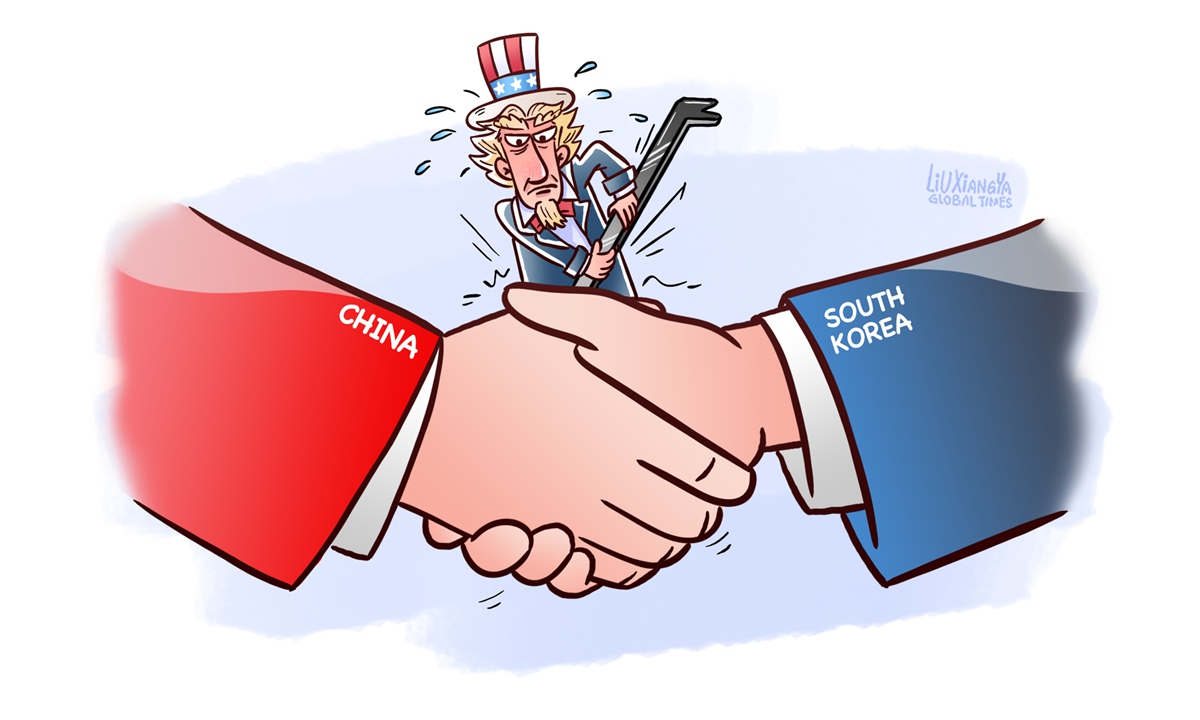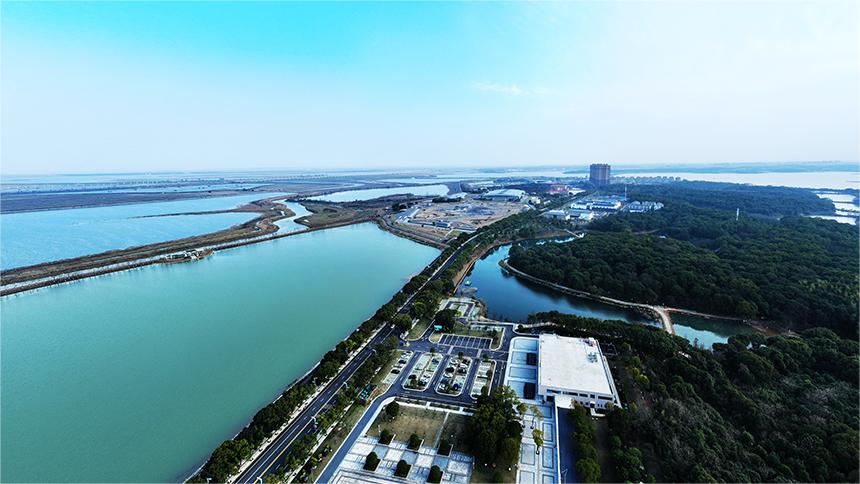SK should go forward, not backward, to expand Chinese market despite US wedge

Illustration: Liu Xiangya/Global Times
It has always been the US' desire to persuade allies to tighten curbs on China's access to semiconductor technology, but South Korean policymakers must be clear-minded that every step taken by Seoul to back down will result in economic losses for South Korean semiconductor makers.
The Yonhap News Agency published an article on Wednesday stating that the South Korean government is considering cooperating with the US-led restrictions on the export of chipmaking equipment to China.
This news has not been confirmed yet, but it has attracted attention from industry insiders, because many believe if Seoul succumbs to US pressure, South Korean semiconductor-related industries will suffer huge losses. Amid increasingly fierce international competition, if South Korean companies' chip competitiveness is being damaged, their market shares will soon be seized by competitors from other countries.
The discussion came after Bloomberg reported on March 6 that the US government is pressing allies to further tighten restrictions on China's access to semiconductor technology. US politicians have become hysterical partly because of the progress Chinese semiconductor companies have made in independent innovation, but it is precisely because of China's technological progress and intense competition from other countries that the South Korean government should provide more support to domestic semiconductor manufacturers, rather than pursue political benefit to enhance the US-South Korea alliance at the expense of South Korea's chip competitiveness.
China is an important consumer of semiconductors because of the size of its domestic electronics market and its status as production base for global manufacturers. South Korean semiconductor enterprises cannot afford losing the Chinese market. That's why they have made significant investments in China.
Citing South Korea's presidential office, Reuters reported in October 2023 that Samsung Electronics and SK Hynix will be allowed to supply US chip equipment to their plants in China indefinitely without nods from the US government. This is crucial for both companies, as they make many of their chip products at their Chinese factories.
No matter how much pressure the US piles on South Korea, Seoul should not step back. Even though some people believe it is not easy to move forward, creating more space for South Korean semiconductor enterprises to develop in China under the pressure from Washington, at the very least, the achievements already made in the past year by South Korea should not be erased.
As reported by Reuters, Samsung makes about 40 percent of its NAND flash chips at its plant in Xi'an, Northwest China's Shaanxi Province, while SK Hynix makes about 40 percent of its DRAM chips in Wuxi, East China's Jiangsu Province. South Korea should consider how to strengthen cooperation with China and help its companies further expand investment in China, rather than succumbing to US pressure and harming the interests of its own industries and enterprises.
Reuters said in another report that South Korea's exports rose for a fourth month in January, as a rebound in sales to China and the biggest surge in chip shipments in six years provided a boost to the economy at the start of 2024. This added to evidence that China's market is attractive and has great potential and vitality. Although it may be too early to state that the chip surplus has started to ease, the global semiconductor industry is undergoing subtle changes.
Many South Korean companies hope to seize the opportunity of market recovery and increase their presence in the Chinese market. At present, South Korean semiconductor companies are in a critical period of stabilizing their sales in China. Hopefully the South Korean government can play a positive role in promoting bilateral cooperation.
China and South Korea have a strong economic complementarity in the fields of chip supply chains. Improving semiconductor cooperation is in the fundamental interest of both sides. Amid uncertainty generated by US chip war against China, South Korea will inevitably face pressure from the US, but South Korea should go forward, not backward, to protect the legitimate interests of South Korean enterprises.
The author is a reporter with the Global Times.
Photos
Related Stories
- S. Korea, U.S. kick off joint military exercise increasing regional tension
- S.Koreans lined up to bid farewell to giant panda Fu Bao, who will return to China in early April
- China urges S.Korea to refrain from hyping up SCS issue
- U.S. judge in Florida denies Trump's motion to dismiss classified documents case
- California sees rise in tuberculosis cases
- CIA operations show U.S. harmful interference in China's internal affairs "plainly evident": scholar
Copyright © 2024 People's Daily Online. All Rights Reserved.









